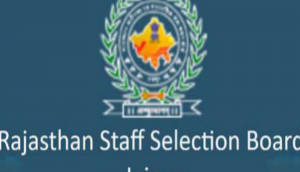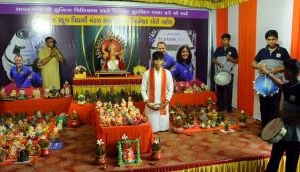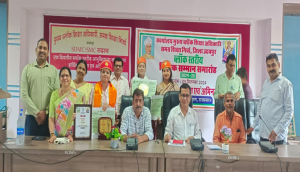
More than 3,000 students of the Jawaharlal Nehru University (JNU) have rejected a contentious UGC Gazette notification on MPhil/PhD admission rules in a referendum organised by the JNU Students' Union (JNUSU).
The referendum was held on 7 February after agitation against the JNU administration's "unilateral imposition" of the UGC circular, which makes oral interviews or viva voce the main criteria for admitting students into the MPhil/PhD programmes. The circular, dated 5 May 2016, curtails student intake as well
Several students have alleged over the past few years that students from deprived backgrounds are being discriminated against at viva voce.
A total of 3,398 students or 98% of the 3,455 students, who turned up to cast their vote have said no, as per the results declared on 8 January.
Meanwhile, an indefinite hunger strike by half a dozen students, including, JNUSU president Mohit Kumar Pandey, against the same continues since 30 January.
Taking a stand
On 5 February, Union Human Resource Development Minister (MHRD) Prakash Javadekar had told the media that he was "open" to meeting agitating students if they approached him. But Javadekar defended the change, saying that admitting students purely on the basis of interviews conformed to the "best practices" the world over.
However, JNUSU President Pandey said that he had written to the MHRD "several times", without getting a response.
Since 2012, the JNUSU had been demanding that the viva weightage be reduced, as students from SC/ST categories and other marginalised backgrounds have consistently underperformed in the viva voce.
In fact, a Viva Committee had recommended a reduction of viva weightage from 30% to 15% in its meeting on 4 November, as the under-performance of SC/ST candidates in viva over the years was found to be statistically significant.
So far the weightage was 70% for written and 30% for viva. The new rules render the written exam as merely a "qualifying" step, where a student needs to score 50% without any relaxation for those from deprived backgrounds. Post the 'qualification' through the written exam, the admission would be based 100% on the viva.
Where's the inclusion?
On 3 January, the UGC notification was adopted by the administration during an Executive Council (EC) meeting, after it was approved at a controversial Academic Council (AC) meeting on 26 December.
Some teachers have alleged that Vice Chancellor Jagadesh Kumar had bulldozed the decision at the AC meeting without the approval of the members.
The UGC notification also imposes a cap on the number of research students a faculty member can have. The JNUSU alleges that this is meant to curtail the number of research students in the name of "quality".
Pandey said the number of faculty members should be increased if they wanted to impose this rule, otherwise, the opportunities for taking in new research students would have to be drastically cut down.
JNUSU General Secretary Satarupa Chakraborty said, "The referendum is a clear message that students of JNU will not tolerate the unilateral imposition of this draconian UGC Gazette." She said the new VC had "failed to understand the importance of JNU's hard-earned progressive admission policy."
"We want to alert the VC to take this mandate seriously, otherwise the VC will have to face the drastic consequences of students' anguish," Chakraborty said.
Edited by Jhinuk Sen
First published: 9 February 2017, 5:32 IST






![BJP's Kapil Mishra recreates Shankar Mahadevan’s ‘Breathless’ song to highlight Delhi pollution [WATCH] BJP's Kapil Mishra recreates Shankar Mahadevan’s ‘Breathless’ song to highlight Delhi pollution [WATCH]](https://images.catchnews.com/upload/2022/11/03/kapil-mishra_240884_300x172.png)

![Anupam Kher shares pictures of his toned body on 67th birthday [MUST SEE] Anupam Kher shares pictures of his toned body on 67th birthday [MUST SEE]](https://images.catchnews.com/upload/2022/03/07/Anupam_kher_231145_300x172.jpg)






